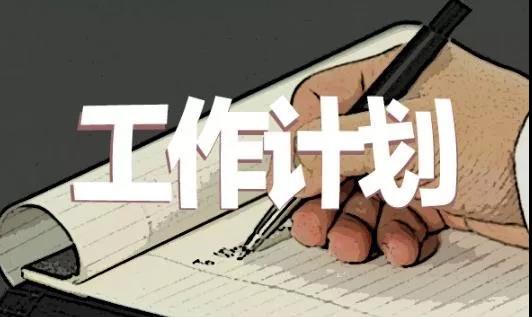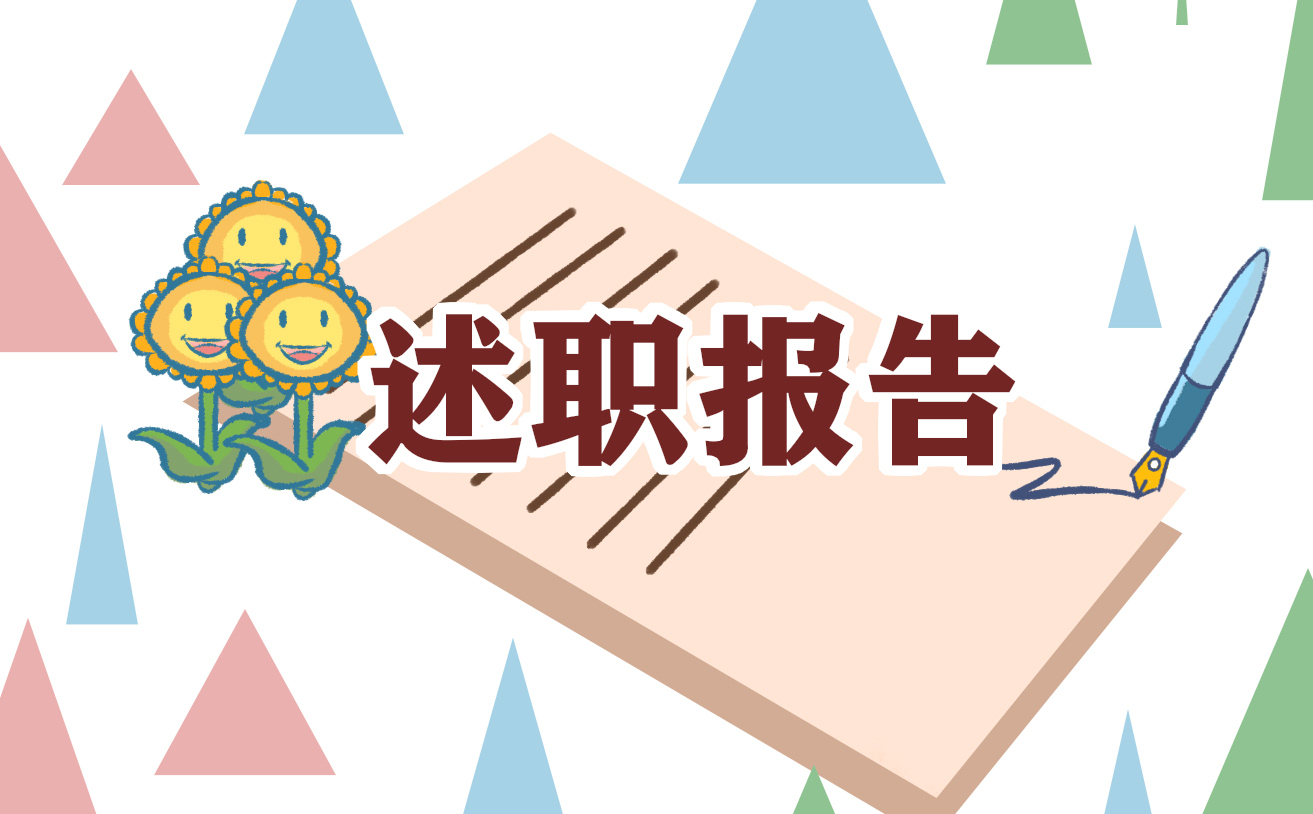TED英语演讲稿Goodafternooneveryone:MynameisYuXiaoFeng.I’mtwelveyearsold,I’mfromZhon下面是小编为大家整理的TED英语演讲稿3篇,供大家参考。

TED英语演讲稿篇1
Good afternoon everyone:
My name is Yu Xiao Feng. I’m twelve years old,I’m from Zhongba PrimarySchool.
Everyone has a dream,Now I"ll talk about my dream,What is my dream? I oftenask myself.
Now I am a young girl with a new dream——to be a doctor. I want to be afamous doctor, helping the sick and saving their lives. Why has my dreamchanged? Well, at the age of 11 I was ill, badly ill. I had to leave both myschool and my friends and go to the hospital. Every day I suffered the troublescaused by this illness.
I also saw some people who were suffering . I made up my mind to become adoctor, so that I can help the sick people and cure them of their diseases.
I want to try my best to help the poor treat an illness. I want to let themhave an opportunity to receive excel-lent treatments for their illnesses withouthaving to pay much or any money.
I"ll do every bit to cure the incurable. I hope to see a world, where thereis no fatal diseases. I"m confident that through the joint efforts of you andme, man will put an end to his bodily sufferings and this dream of mine will oneday be brought into reality.
大家下午好:
我的名字是俞晓凤。我12岁了,我来自中坝小学。每个人都有一个梦想,现在我将谈论我的梦想,我的梦想是什么?我常常问自己。
现在我是一个年轻的女孩,一个新的梦想——成为一名医生。我想成为一名著名的医生,帮助病人和挽救他们的生命。为什么我的梦想改变了?在11岁的时候我病了,病得很重。我不得不离开我的学校都和我的朋友去医院,我每天都遭受病痛。
我也看到一些人受苦。我下定决心要成为一名医生,这样我可以帮助病人和他们治愈的疾病。
我想尽力帮助穷人治病。我想让他们有机会接受治疗他们的疾病,而不必支付多少钱。
我做的每一点都是为了治愈不治之症。我希望看到一个没有疾病的世界。我相信,通过我和你们的共同努力,人类将结束他的身体痛苦,我的梦想总有一天会实现。
TED英语演讲稿篇2
When Dorothy was a little girl, she wasfascinated by her goldfish. Her father explained to her that fish swim byquickly wagging their tails to propel themselves through the water. Withouthesitation, little Dorothy responded, "Yes, Daddy, and fish swim backwardsby wagging their heads."
当多萝西还是一个小女孩的时候,她被她的金鱼迷住了。她的父亲向她解释,鱼是通过快速摇尾推动自己在水中前进。毫无犹豫地,小多萝西回答道,“是的,爸爸,而且鱼会通过摇头来后退。”
In her mind, it was a fact as true as anyother. Fish swim backwards by wagging their heads. She believed it.
在她的心里,这是一个确切的事实。鱼通过摇头来后退。她坚信如此。
Our lives are full of fish swimmingbackwards. We make assumptions and faulty leaps of logic. We harbor bias. Weknow that we are right, and they are wrong. We fear the worst. We strive forunattainable perfection. We tell ourselves what we can and cannot do. In ourminds, fish swim by in reverse frantically wagging their heads and we don"teven notice them.
我们的生活中充满着倒游的鱼。我们制造假设和错误跳跃的逻辑。我们心怀偏见。我们知道我们是对的,而他们是错的。我们害怕最糟糕的。我们力求无法获得的完美。我们告诉自己什么是我们能做的和不能做的。在我们心里,鱼是通过往相反方向疯狂摇头来游泳的,而我们甚至不曾察觉过它们。
I"m going to tell you five facts aboutmyself. One fact is not true. One: I graduated from Harvard at 19 with anhonors degree in mathematics. Two: I currently run a construction company inOrlando. Three: I starred on a television sitcom. Four: I lost my sight to arare genetic eye disease. Five: I served as a law clerk to two US Supreme Courtjustices. Which fact is not true? Actually, they"re all true. Yeah. They"re alltrue.
我想告诉你们五件关于我的事实。其中有一件不是真的。第一:我19岁的时候以数学荣誉学士学位毕业于哈佛大学。第二:我现在在奥兰多经营着一家建筑公司。第三:我主演过一部电视情景剧。第四:我因为患上一种罕有的遗传性眼疾而失去了视力。第五:我曾经给两位美国最高法院的法官当过法律助手。哪一个不是真的呢?事实上,它们都是真的。是的,它们都是真的。
At this point, most people really only careabout the television show.
这时候,大部分人其实都只关心那部电视剧。
I know this from experience. OK, so theshow was NBC"s "Saved by the Bell: The New Class." And I playedWeasel Wyzell, who was the sort of dorky, nerdy character on the show, whichmade it a very major acting challenge for me as a 13-year-old boy.
这是经验告诉我的。好吧,那部电视剧是NBC的“SavedbytheBell:TheNewClass."而我饰演了WeaselWyzell,一个在剧中带点笨拙书呆子性格的角色,对于13岁的我来说,这是一个很重大的演出挑战。
Now, did you struggle with number four, myblindness? Why is that? We make assumptions about so-called disabilities. As ablind man, I confront others" incorrect assumptions about my abilities everyday. My point today is not about my blindness, however. It"s about my blind taught me to live my life eyes wide open. It taught me to spotthose backwards-swimming fish that our minds create. Going blind cast them intofocus.
现在,你是否纠结于第四个事实,我的失明?为什么会这样呢?我们对所谓的残疾做出一些假设。作为盲人,我每天都面对别人对我能力的错误假设。然而,我今天的重点不在于我的失明。而是在于我的视野。失明教会我用开阔的眼界去生活。它教会我去发现那些倒游的鱼,我们内心创造出来的鱼。失明使它们变成了焦点。
What does it feel like to see? It"simmediate and passive. You open your eyes and there"s the world. Seeing isbelieving. Sight is truth. Right? Well, that"s what I thought.
看得见是怎么样的一种感觉?是即时并且被动的。你睁开双眼,世界就在你眼前。看见什么相信什么。眼见为实。对吧?好吧,我当初是这么想的。
Then, from age 12 to 25, my retinasprogressively deteriorated. My sight became an increasingly bizarre carnivalfunhouse hall of mirrors and illusions. The salesperson I was relieved to spotin a store was really a mannequin. Reaching down to wash my hands, I suddenlysaw it was a urinal I was touching, not a sink, when my fingers felt its trueshape.
接着,从12岁到15岁,我的视网膜逐渐衰弱。我的视像变成了愈加奇异的嘉年华游乐场里的哈哈镜。我在商店里好不容易发现的销售员实际上是一个人体模型。俯下身去洗手,当我的手指感受到它的真实形状,我意识到我去触摸的是小便池,而不是洗手池。
A friend described the photograph in my hand, and only then I could seethe image depicted. Objects appeared, morphed and disappeared in my reality. Itwas difficult and exhausting to see. I pieced together fragmented, transitoryimages, consciously analyzed the clues, searched for some logic in my crumblingkaleidoscope, until I saw nothing at all.
一位朋友向我描述我手中的照片,只有在那时候我才能明白图像描画了些什么。物体在我的现实中出现、变形和消失。看见成为了一件困难的使我筋疲力尽的事情。我把支离破碎的、片刻的图像拼接起来,凭感觉分析线索,在我破碎的万花筒中寻找符合逻辑的对应,直到我什么都看不见。
I learned that what we see is not universaltruth. It is not objective reality. What we see is a unique, personal, virtualreality that is masterfully constructed by our brain.
我认识到我们所看到的并不即是普遍真理。并不是客观现实。我们所看到的是独一无二的虚拟现实,它是由我们的大脑巧妙地构造出来的。
Let me explain with a bit of amateurneuroscience. Your visual cortex takes up about 30 percent of your brain.That"s compared to approximately eight percent for touch and two to threepercent for hearing. Every second, your eyes can send your visual cortex as manyas two billion pieces of information. The rest of your body can send your brainonly an additional billion. So sight is one third of your brain by volume andcan claim about two thirds of your brain"s processing resources. It"s nosurprise then that the illusion of sight is so compelling. But make no mistakeabout it: sight is an illusion.
请让我以外行的身份解释一遍神经系统学。你的视觉皮层占据了你脑部的大概30%。相比于触觉的8%以及听觉的2-3%。每一秒钟,你的双眼能够向你的视觉皮层传达多达二十亿的信息片段。其余的身体部分加起来也仅能够传达另外的十亿。所以视觉占据了你脑部容量的三分之一并且占用了你脑部中三分之二的信息处理资源。因此意想得到的是视觉幻象是多么的令人信服。但是别误会了:我们所看到的只是一种幻象。
Here"s where it gets interesting. To createthe experience of sight, your brain references your conceptual understanding ofthe world, other knowledge, your memories, opinions, emotions, mentalattention. All of these things and far more are linked in your brain to yoursight. These linkages work both ways, and usually occur subconsciously. So for example, what you see impacts how you feel, and the way you feel can literally change what you see.
这是事情变得有趣的地方。为了制造视觉经验,你的大脑参考了你对这个世界的概念性理解,其它知识、你的记忆、看法、情绪和心理关注。所有的这些东西和以及其它的都连结于你的大脑和视觉景象之间。这些连结是双向作用的,并且常常在潜意识中发生。举例子来说,你所看到的会影响到你的感觉,而你的感觉又能够直接改变你所看到的。
Numerous studies demonstrate this. If you are asked toestimate the walking speed of a man in a video, for example, your answer willbe different if you"re told to think about cheetahs or turtles. A hill appearssteeper if you"ve just exercised, and a landmark appears farther away if you"rewearing a heavy backpack. We have arrived at a fundamental contradiction.
许多的研究证明了这一点。如果你被要求去估计视频中人物的行走速度,举例来说,在被告知去想着猎豹或者乌龟的情况下,你的答案将会不一样。如果你刚刚运动完,你会感觉山变陡峭了,如果你背着一个很重的背包,眼前的目的地看起来距离更远。我们在这里遇到了一种基本的矛盾。
What you see is a complex mental construction of your own making, but you experienceit passively as a direct representation of the world around you. You createyour own reality, and you believe it. I believed mine until it broke apart. Thedeterioration of my eyes shattered the illusion.
你肉眼所看到的东西是你自己创造的一种复杂的心智建造,但是你被动地经历着它让它作为你周遭世界的一种直接呈现。你创造了属于你自己的现实并且深信着它。我深信于我的现实直到它瓦解了。我双眼的衰退粉碎了这种幻象。
You see, sight is just one way we shape ourreality. We create our own realities in many other ways. Let"s take fear asjust one example. Your fears distort your reality. Under the warped logic offear, anything is better than the uncertain. Fear fills the void at all costs,passing off what you dread for what you know, offering up the worst in place ofthe ambiguous, substituting assumption for reason. Psychologists have a greatterm for it: awfulizing.
你看,视觉只是我们认识世界的一种途径。我们可以通过许多其它的方式去创造属于我们自己的现实。让我们来举恐惧作为一个例子。你的恐惧扭曲了你的现实。在扭曲的恐惧逻辑影响下,任何事情都比未知要好。恐惧不惜一切代价填补空白,把你所惧怕的冒充成你所知道的,让最糟糕取代了不明确,使假设代替了原因。心理学家对此有一个很好的术语:往坏处想。
Right? Fear replaces the unknown with theawful. Now, fear is self-realizing. When you face the greatest need to lookoutside yourself and think critically, fear beats a retreat deep inside yourmind, shrinking and distorting your view, drowning your capacity for criticalthought with a flood of disruptive emotions. When you face a compellingopportunity to take action, fear lulls you into inaction, enticing you topassively watch its prophecies fulfill themselves.
对吧?恐惧把未知的替换成了可怕的。现在,恐惧在自我实现着。当你非常迫切的需要去客观看待自己并进行批判性思考的时候,恐惧在你的内心深处打起了退堂鼓,收缩并扭曲你的观点,以洪水般涌现的破坏性情绪淹没你批判思考的能力。当你面对一个极具吸引力的机会去采取行动时,恐惧误导你去无所作为,诱使你被动地看着它的预言一个个实现成真。
When I was diagnosed with my blindingdisease, I knew blindness would ruin my life. Blindness was a death sentencefor my independence. It was the end of achievement for me. Blindness meant Iwould live an unremarkable life, small and sad, and likely alone. I knew it.This was a fiction born of my fears, but I believed it. It was a lie, but itwas my reality, just like those backwards-swimming fish in little Dorothy"smind. If I had not confronted the reality of my fear, I would have lived it. Iam certain of that.
当我被诊出患有致盲眼疾时,我料到失明将会毁了我的生活。失明对我的独立能力判了死刑。它是我一生成就的终点。失明意味着我将度过平凡的一生,渺小且凄惨,极有可能孤独终老。我就知道会这样。这是我因为恐惧带来的胡编乱造,但我相信了。它是一个谎言,但它曾是我的现实。就像小多萝西内心那些倒游的鱼一样。如若我不曾面对过我内心恐惧创造出来的现实,我会就那样活着。我很确定。
So how do you live your life eyes wideopen? It is a learned discipline. It can be taught. It can be practiced. I willsummarize very briefly.
所以你们如何去以开阔的眼界生活呢?这是一个需要学习的学科。它能被传授。它能被练习。我简单地总结一下。
Hold yourself accountable for every moment,every thought, every detail. See beyond your fears. Recognize your assumptions.Harness your internal strength. Silence your internal critic. Correct yourmisconceptions about luck and about success. Accept your strengths and yourweaknesses, and understand the difference. Open your hearts to your bountifulblessings.
让自己学会负责,对每一时刻,每个想法,每个细节。超越你内心的恐惧。识别出你所作的假设。展现你内在的能力。消除你内心的批判。修正你对于运气和成功的错误概念。接受自己的长处和短处,并清楚认识它们之间的区别。打开你的心扉去迎接对你满满的祝福。
Your fears, your critics, your heroes, yourvillains -- they are your excuses, rationalizations, shortcuts, justifications,your surrender. They are fictions you perceive as reality. Choose to seethrough them. Choose to let them go. You are the creator of your reality. Withthat empowerment comes complete responsibility.
你的恐惧,你的批判,你的英雄,你的敌人——他们都是你的借口、合理化作用、捷径、辩护、屈服。它们是你错认为现实的小说。尝试选择看穿它们。尝试让它们远离自己。你是自我现实的创造者。伴随这种权利而来的是你需要负起全部的责任。
I chose to step out of fear"s tunnel intoterrain uncharted and undefined. I chose to build there a blessed life. Farfrom alone, I share my beautiful life with Dorothy, my beautiful wife, with ourtriplets, whom we call the Tripskys, and with the latest addition to thefamily, sweet baby Clementine.
我选择走出恐惧的隧道,步入了未知的领域。我选择在那里构建幸福的人生。远离孤单,我分享我的美好生活,与多萝西,我美丽的妻子,与我们的三胞胎,我们称之为“Tripskys”,还有新添的家庭成员,可爱的宝贝克莱蒙蒂。
What do you fear? What lies do you tellyourself? How do you embellish your truth and write your own fictions? Whatreality are you creating for yourself?
你在害怕什么?你在欺骗自己什么?你是如何修饰自己的真相,编写自己的小说?你在为自己创造着怎么样的现实?
In your career and personal life, in yourrelationships, and in your heart and soul, your backwards-swimming fish do yougreat harm. They exact a toll in missed opportunities and unrealized potential,and they engender insecurity and distrust where you seek fulfillment andconnection. I urge you to search them out.
在你的职业生涯和个人生活中,在你的人际关系中,在你的内心和灵魂中,倒游的鱼给你带来巨大的伤害。它们使你为错失的机会以及尚未实现的潜能付出代价。它们在你寻求满足与联系时引起你的不安以及不信任。我呼吁大家把它们找出来。
Helen Keller said that the only thing worsethan being blind is having sight but no vision. For me, going blind was aprofound blessing, because blindness gave me vision. I hope you can see what Isee.
海伦·凯勒曾说过,唯一比失明更糟糕的是拥有视力,却没有远见。失明对我来说是一种深深的祝福,因为失明给予了我远见。我衷心希望你们也能看见我所看见的。
Thank you.(Applause)
谢谢。(掌声)
Bruno Giussani: Isaac, before you leave thestage, just a question. This is an audience of entrepreneurs, of doers, ofinnovators. You are a CEO of a company down in Florida, and many are probablywondering, how is it to be a blind CEO? What kind of specific challenges do youhave, and how do you overcome them?
布鲁诺·朱萨尼:艾萨克,在你离开之前,我想问一个问题。在座的各位都是创业者、实干家、创新者。你是佛罗里达一家公司的执行总裁,很多人大概都会好奇,身为一名失明的执行总裁究竟是怎么样的呢?这使你面临哪些具体的挑战,而你又是怎么克服它们的呢?
Isaac Lidsky: Well, the biggest challengebecame a blessing. I don"t get visual feedback from people.
艾萨克·利德斯基:好吧,最大的挑战成了一种祝福。我看不到别人的反应。
BG: What"s that noise there? IL: Yeah. So,for example, in my leadership team meetings, I don"t see facial expressions orgestures. I"ve learned to solicit a lot more verbal feedback. I basically forcepeople to tell me what they think. And in this respect, it"s become, like Isaid, a real blessing for me personally and for my company, because wecommunicate at a far deeper level, we avoid ambiguities, and most important, myteam knows that what they think truly matters.
布:有什么声音在哪里吗?艾:是的。比如说在我的领导团队的会议中,我无法看到别人的表情或者手势。我学会去征求更多的言语反馈。我基本都要求人们把他们的想法告诉我。正因如此,它成为了,如我所说,对我个人还有我公司的一种真正的祝福。因为我们获得了更深层次的沟通。我们避免了歧义,还有更重要的,我的团队清楚知道他们的想法是真的要紧的。
BG: Isaac, thank you for coming to TED. IL:Thank you, Bruno.
布:艾萨克,感谢你来到了TED。艾:谢谢你,布鲁诺。
TED英语演讲稿篇3
When people find out I write about time management, they assume two things. One is that I"m always on time, and I"m not. I have four small children, and I would like to blame them for my occasional tardiness, but sometimes it"s just not their fault. I was once late to my own speech on time management.
当人们发现我写关于时间管理的文章时,他们都会假设两件事:第一,我永远都准时,但我并不是。我有四个小孩,我偶尔将迟到归咎于他们,不过有时候真的不是因为他们。我有一次在去我的一个关于时间管理的演讲时迟到了。
We all had to just take a moment together and savor that irony.
我们都需要一点时间去好好地体味一下这有多么讽刺。
The second thing they assume is that I have lots of tips and tricks for saving bits of time here and there.Sometimes I"ll hear from magazines that are doing a story along these lines, generally on how to help their readers find an extra hour in the day. And the idea is that we"ll shave bits of time off everyday activities, add it up, and we"ll have time for the good stuff.
第二,人们总是假设我有很多关于如何节省时间的贴士和技巧。有时候我听说一些杂志 在写这方面的故事,通常都是关于教读者如何在一天中获得额外一个小时。基本思路就是从日常的每个活动中挤出一点时间,加起来,然后我们就有时间去做更有意思的事情了。
I question the entire premise of this piece, but I"m always interested in hearing what they"ve come up with before they call me. Some of my favorites:doing errands where you only have to make right-hand turns.
我对这个说法持保留意见,不过我还是愿意听听他们在找我之前有什么想法。我最喜欢的几个是:只完成那些只需要右转的事;
Being extremely judicious in microwave usage: it says three to three-and-a-half minutes on the package, we"re totally getting in on the bottom side of that. And my personal favorite, which makes sense on some level, is to DVR your favorite shows so you can fast-forward through the commercials.
在用微波炉时,要极度审慎:当食物包装上面写了3到3.5分钟时,我们要挑时间最短的那个。我个人最喜欢的是,录下你最喜欢看的电视剧,然后你就可以跳过广告了。其实在某个程度上,还是挺有道理的。
That way, you save eight minutes every half hour, so in the course of two hours of watching TV, you find 32 minutes to exercise.
这样,你每半个小时就可以挤出八分钟。那么你葱用来看电视的两个小时中,可以挤出32分钟锻炼的时间。
Which is true. You know another way to find 32 minutes to exercise? Don"t watch two hours of TV a day, right?
倒的确是这么回事儿。你还知道其他可以找到32分钟锻炼时间的方法吗?不要每天都看两个小时电视就行了,对吧? (笑声)
Anyway, the idea is we"ll save bits of time here and there, add it up, we will finally get to everything we want to do. But after studying how successful people spend their time and looking at their schedules hour by hour, I think this idea has it completely backward.
总之,就是要在各处都省点时间,加起来就有时间做我们想做的事了。但在我了解成功的人如何分配时间,并看过了他们的时间表后,我觉得这个想法是完全本末倒置的。
We don"t build the lives we want by saving time. We build the lives we want, and then time saves itself.
我们不是通过节省时间来打造我们想过的生活。我们应该先建立我们想要的生活,时间就会自然而然节省出来。
Here"s what I mean. I recently did a time diary project looking at 1,001 days in the lives of extremely busy women. They had demanding jobs, sometimes their own businesses, kids to care for, maybe parents to care for, community commitments -- busy, busy people.
我来解释一下。我最近有个时间日记项目,观察最忙碌的女士生命中的1001天。她们工作繁忙,有时候是自己的生意,有时候要照顾自己的孩子,或者是照顾父母,还有服务社区等等——都是一些很忙的人。
I had them keep track of their time for a week so I could add up how much they worked and slept, and I interviewed them about their strategies, for my book.
我让她们记录了一星期的行程,计算她们工作和睡觉的时间,为了我的书,我还采访 了解了她们的常用策略。
One of the women whose time log I studied goes out on a Wednesday night for something. She comes home to find that her water heater has broken, and there is now water all over her basement. If you"ve ever had anything like this happen to you, you know it is a hugely damaging, frightening, sopping mess.
其中一个被我研究过时间表的女士,在一个周三晚上出去了一趟,回家发现她的热水器坏了,地下室都被水淹了。如果你也遇到过这种事儿的话,你会知道眼前的景象多么令人崩溃和沮丧。
So she"s dealing with the immediate aftermath that night, next day she"s got plumbers coming in, day after that, professional cleaning crew dealing with the ruined carpet. All this is being recorded on her time log. Winds up taking seven hours of her week. Seven hours. That"s like finding an extra hour in the day.
于是那个晚上她立刻着手处理,第二天她找了一个水管工,第三天找了专业的清理人员 来处理损坏的地毯。所有这些都算在了她的时间表内。总共花了她一周中的七个小时。七个小时。这就等于一周七天每天都要挤出一个小时。
But I"m sure if you had asked her at the start of the week, "Could you find seven hours to train for a triathlon?" "Could you find seven hours to mentor seven worthy people?" I"m sure she would"ve said what most of us would"ve said, which is, "No -- can"t you see how busy I am?" Yet when she had to find seven hours because there is water all over her basement, she found seven hours.
但是假如你在这一周刚开始时就问她,“你能在这周抽出七个小时来参加铁人三项吗?”,“你能在这周抽出七个小时指导七个有潜力的人吗?“ 我确定她会像大多数人一样, 说,”怎么可能,你看不出我有多忙吗?“ 但是她最后不得不抽出七个小时,因为她的地下室都被水淹了, 她挤出了这七个小时。
And what this shows us is that time is highly elastic. We cannot make more time, but time will stretch to accommodate what we choose to put into it.
这件事告诉我们:时间是有弹性的。我们不能创造更多时间,但是时间会自己调整去适应我们选择去做的事情。
And so the key to time management is treating our priorities as the equivalent of that broken water heater. To get at this, I like to use language from one of the busiest people I ever interviewed. By busy, I mean she was running a small business with 12 people on the payroll, she had six children in her spare time.
所以时间管理的关键,就是对待最重要的事情应该像对待那个坏了的热水器一样。要做到这一点,我要借用我采访过最忙的人的话。她经营着一个小企业,请了十二名员工,空余时间她还要照顾六个孩子。
I was getting in touch with her to set up an interview on how she "had it all" -- that phrase. I remember it was a Thursday morning, and she was not available to speak with me. Of course, right?
我联系上了她,想要采访她关于她是怎么做到“无所不能”的。我记得那是一个星期四的早晨,她没时间和我说话。当然了,她很忙。
But the reason she was unavailable to speak with me is that she was out for a hike, because it was a beautiful spring morning, and she wanted to go for a hike. So of course this makes me even more intrigued, and when I finally do catch up with her, she explains it like this. She says, "Listen Laura, everything I do, every minute I spend, is my choice."
但是她没时间和我说话的原因是,她去远足了。因为那是春季一个美丽的清晨,所以她去远足了。这样的她让我变得更感兴趣了,当我最终联系上她时,她说:“听我说,劳拉,我做的所有的事情,我花的每分每秒,都是我的选择。
And rather than say, "I don"t have time to do x, y or z," she"d say, "I don"t do x, y or z because it"s not a priority." "I don"t have time," often means "It"s not a priority."
”所以与其说, ”我没有时间做这个,这个,或者那个。” 她会说:”我不做这些事情因为这些不是我的首要任务。““我没有时间”的意思通常是 ”那不是我的首要任务”。
If you think about it, that"s really more accurate language. I could tell you I don"t have time to dust my blinds, but that"s not true. If you offered to pay me $100,000 to dust my blinds, I would get to it pretty quickly.
其实你想想, 那的确是更准确的说法。我可能会告诉你我没有时间清理百叶窗,但那不是真的。假如你愿意付我10万美金让我给百叶窗除尘,我会马上就去做。 (笑声)
Since that is not going to happen, I can acknowledge this is not a matter of lacking time; it"s that I don"t want to do it. Using this language reminds us that time is a choice. And granted, there may be horrible consequences for making different choices, I will give you that.
既然那不可能发生,我可以说不是因为时间不够,而是我不想做。这么说提醒了我们, 时间是一种选择。我会告诉你,当然,不同的选择有时候会带来可怕的后果。
But we are smart people, and certainly over the long run, we have the power to fill our lives with the things that deserve to be there.
但是我们都是聪明人,从长远来看,我们有能力去选择一些值得做的事,来填补我们生命中的时间。那么我们应该怎么做呢?
So how do we do that? How do we treat our priorities as the equivalent of that broken water heater?
我们要如何像对待那个坏了的热水器一样对待我们的首要任务?首先,我们需要找出哪些事最重要。
Well, first we need to figure out what they are. I want to give you two strategies for thinking about this.The first, on the professional side: I"m sure many people coming up to the end of the year are giving or getting annual performance reviews. You look back over your successes over the year, your "opportunities for growth." And this serves its purpose, but I find it"s more effective to do this looking forward.
我想给你们分享两个技巧。第一个,从职业的角度来说:我相信许多人在年底的时候,会发出或者收到年度绩效审查。你回头看看这一年的成功和 “成长的机会”。这的确起到了它的作用,但是我发现往前看会更有效。
So I want you to pretend it"s the end of next year. You"re giving yourself a performance review,and it has been an absolutely amazing year for you professionally. What three to five things did you do that made it so amazing? So you can write next year"s performance review now.
我想让你们把这当做下一年的年底。你在给自己做年度绩效审查,在专业方面,这一年的表现非常出众。是哪三到五件事使这一年变得如此出众?你现在就可以写明年的绩效审查。
And you can do this for your personal life, too. I"m sure many of you, like me, come December, get cards that contain these folded up sheets of colored paper, on which is written what is known as the family holiday letter.
你也可以在个人生活方面这么做。我相信你们许多人,包括我,在十二月,都会收到这种夹着彩色纸的卡片。上面写着“家庭假日信件”。
Bit of a wretched genre of literature, really, going on about how amazing everyone in the household is,or even more scintillating, how busy everyone in the household is. But these letters serve a purpose,which is that they tell your friends and family what you did in your personal life that mattered to you over the year.
听起来像是一个挺悲惨的文学题材,谈论家里每个人有多了不起,或者更精彩点,家里每个人有多忙。但是这些信有它们的用处,它们告诉你的朋友和家人你这一年里做了什么对个人生活有意义的事。
So this year"s kind of done, but I want you to pretend it"s the end of next year, and it has been an absolutely amazing year for you and the people you care about. What three to five things did you do that made it so amazing? So you can write next year"s family holiday letter now. Don"t send it.
那么今年快要结束了,我想让你假装这是明年的年底,对你和你在乎的人来说,这都是无与伦比的一年。哪三到五件事让你这一年表现如此出色?其实你现在就可以写明年的家庭假日信件了。先不要发出去。
Please, don"t send it. But you can write it. And now, between the performance review and the family holiday letter, we have a list of six to ten goals we can work on in the next year.
真的,不要发出去。但是你可以写。现在,有了绩效评估和写给家人的信,我们就有了六到十个明年可以努力的目标。我们需要先把他们分成可行的阶段性任务。
And now we need to break these down into doable steps. So maybe you want to write a family history.First, you can read some other family histories, get a sense for the style. Then maybe think about the questions you want to ask your relatives, set up appointments to interview them. Or maybe you want to run a 5K. So you need to find a race and sign up, figure out a training plan, and dig those shoes out of the back of the closet.
或许你要写一个家族传记。首先吗,你可以读读别人的家族历史,了解一下大概的风格 然后可以想象你要问亲戚的问题,约定和他们见面谈话的时间。或者你想要参加一个五千米的短程马拉松。你需要先找一个竞赛报名,再做一个培训计划,从衣柜底下翻出你的运动鞋。
And then -- this is key -- we treat our priorities as the equivalent of that broken water heater, by putting them into our schedules first. We do this by thinking through our weeks before we are in them.
然后——这是关键——我们将我们的首要事件视为那个坏掉的热水器,将它们优先放入我们的日程表里。我们要在事情发生的几周前就先想好。
I find a really good time to do this is Friday afternoons. Friday afternoon is what an economist might calla "low opportunity cost" time. Most of us are not sitting there on Friday afternoons saying, "I am excited to make progress toward my personal and professional priorities right now."
我发现周五的下午最适合处理这事儿。周五的下午是被经济学家称为“低机会成本”时间。我们大部分人不会在周五下午想着,“我要朝我的个人和职业生涯的首要事件迈进了, 所以很兴奋。“
But we are willing to think about what those should be. So take a little bit of time Friday afternoon, make yourself a three-category priority list: career, relationships, self. Making a three-category list reminds usthat there should be something in all three categories.
但是我们愿意去想那些事是什么。所以在周五下午花一点时间,为自己做一个分成三类的首要事件的列表:事业、人际关系、个人。这样的三项分类列表提醒了我们每一个类别都应该有一些事。
Career, we think about; relationships, self -- not so much. But anyway, just a short list, two to three items in each. Then look out over the whole of the next week, and see where you can plan them in.
事业,我们经常考虑;人际关系,个人——很少会想。无论如何,只要一个短短的列表,每个都包含两到三件事。它们会帮助我们看清下周,如何在下周计划这些事情。你可以决定如何计划。
Where you plan them in is up to you. I know this is going to be more complicated for some people than others. I mean, some people"s lives are just harder than others. It is not going to be easy to find time to take that poetry class if you are caring for multiple children on your own. I get that. And I don"t want to minimize anyone"s struggle. But I do think that the numbers I am about to tell you are empowering.
这可能对一些人来说会比较困难一点。我的意思是,有些人的人生就是比较复杂。如果你自己有好几个要照顾的小孩,想要找时间去参加诗歌班一定不容易。我懂。我不想轻视任何人的困难。但是我觉得我接下来要说的数字,是会改变你的想法的。
There are 168 hours in a week. Twenty-four times seven is 168 hours. That is a lot of time. If you are working a full-time job, so 40 hours a week, sleeping eight hours a night, so 56 hours a week -- that leaves 72 hours for other things. That is a lot of time.
我们每周都有168个小时,24乘以7是168个小时。这是一段很长时间。假如你有一个全职的工作,一周是40个小时,每晚睡八个小时,一周是56个小时,我们有剩下72个小时来做其他事情。这是一段很长的时间。
You say you"re working 50 hours a week, maybe a main job and a side hustle. Well, that leaves 62 hours for other things. You say you"re working 60 hours. Well, that leaves 52 hours for other things. You say you"re working more than 60 hours. Well, are you sure?
假如你说你每周工作50个小时,比如一份全职和一份兼职。这样你还是有60小时去做其他的事情。假如你说你每周工作60个小时,你还是有52个小时去做其他的事情。你说你每周工作超过60个小时,你确定吗?
There was once a study comparing people"s estimated work weeks with time diaries. They found that people claiming 75-plus-hour work weeks were off by about 25 hours.
曾经有一个研究对比了人们估计的工作时间,和实际的工作日记。他们发现那些表示工作超过75小时的人,有25小时的误差。
You can guess in which direction, right? Anyway, in 168 hours a week, I think we can find time for what matters to you.
你可以猜到这个误差是多了还是少了吧?无论如何,在一周的168个小时里,我觉得我们总可以找到时间做我们想做的事。
If you want to spend more time with your kids, you want to study more for a test you"re taking, you want to exercise for three hours and volunteer for two, you can. And that"s even if you"re working way more than full-time hours.
如果你想花时间陪陪你的孩子,或者准备你即将到来的考试,你想锻炼两三个小时或者 做两个小时志愿者,你都可以的。即便你的工作时间远超过法定时间。
So we have plenty of time, which is great, because guess what? We don"t even need that much time to do amazing things. But when most of us have bits of time, what do we do? Pull out the phone, right?Start deleting emails. Otherwise, we"re puttering around the house or watching TV.
所以我们有很多时间,这很好。但是你知道吗?我们根本不需要那么多时间去完成一个大目标。但当我们有一点空闲时间的时候,我们会做什么?拿出手机,是吧?开始删除邮件。或者在家里闲逛,看电视。
But small moments can have great power. You can use your bits of time for bits of joy. Maybe it"s choosing to read something wonderful on the bus on the way to work.
但是每个不起眼的时刻都潜力无限。你可以用零星的时间,来获得零星的快乐。比如说在去上班的公车上读一些精彩的东西。
I know when I had a job that required two bus rides and a subway ride every morning, I used to go to the library on weekends to get stuff to read. It made the whole experience almost, almost, enjoyable. Breaks at work can be used for meditating or praying. If family dinner is out because of your crazy work schedule, maybe family breakfast could be a good substitute.
当我以前的工作需要我每天早上乘两趟公车和一趟地铁的时候,我周末会去图书馆找东西来读。这几乎,几乎让我的生活更丰富了。工作间隙的休息时间可以用来冥想或者祷告。如果你因为工作忙而不能吃家庭晚餐,试一下家庭早餐。
It"s about looking at the whole of one"s time and seeing where the good stuff can go. I truly believe this.There is time. Even if we are busy, we have time for what matters. And when we focus on what matters, we can build the lives we want in the time we"ve got.
这就是看着一个人所有的时间,然后找到什么时候可以做想做的事。我真的相信,我们都有充分的时间。就算我们很忙,我们仍然有时间去做重要的事。当我们关注在重要的事上时,我们可以用所拥有的时间创造我们想要的生活。
Thank you.
谢谢。



